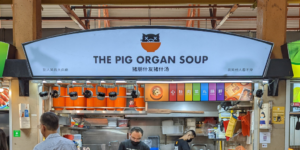Category: 1.2 Open Source (Industry)
-

Paid vs. volunteer open source work in China (projects) 3 / 3
We just finished redoing our original analysis of paid vs. volunteer work in open source for Gitee, a Chinese-dominated code hosting platform from China. We wanted to understand where China stands in open source. Previous blog posts looked at base data, e.g. the half/half split between paid and volunteer work, as well as developer behavior,…
-

Paid vs. volunteer open source work in China (developers) 2 / 3
We just finished redoing our original analysis of paid vs. volunteer work in open source for Gitee, a Chinese-dominated code hosting platform from China. We wanted to understand where China stands in open source. The previous blog post explained the half / half split between paid vs. volunteer time in terms of total work on…
-

Paid vs. volunteer open source work in China 1 / 3
In 2014 we published a study on paid vs. volunteer work in open source, using a representative sample of open source projects from 2008 (i.e. before GitHub). In 2008, open source activity was decidedly Western, with little contributions from China. In 2017, I finally found a student to redo the analysis for China. More specifically,…
-

Survey of open source compliance by working group of Bitkom (in German)
The open source working group of Bitkom, a German IT association, has prepared a short survey on open source compliance in companies. My research group supports the survey. If you are interested, please take the survey (in German).
-

Bitkom Forum Open Source 2018 (in German)
Am 18. September 2018 findet in Erfurt das 2018 Bitkom Forum Open Source statt. Thema ist die Werkzeugunterstützung von Open Source Governance und Compliance in der Softwarelieferkette. Meine Forschungsgruppe wird mit einem Vortrag zu Anforderungen an Open Source Governance and License Compliance vertreten sein, basierend auf einem gleichnamigen auf der OSS 2018 präsentierten Papier. Please…
-

The 120 seconds open source pitch
I often have to “sell open source” and the pitch for this is ever changing. Here is the current one; it stands at 120 seconds and is aimed at the German Mittelstand. Any feedback is appreciated! “Software is eating the world” says a Silicon Valley venture capitalist. This is not just American hyberbole. Not only…



